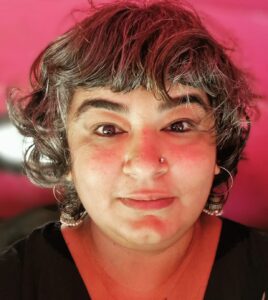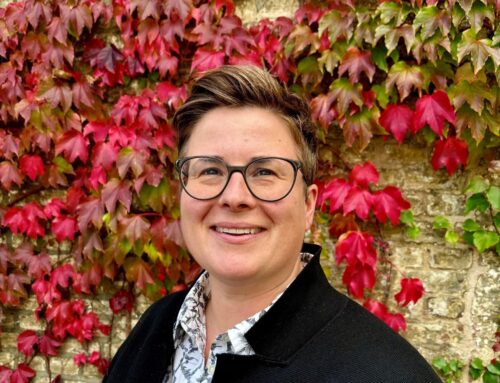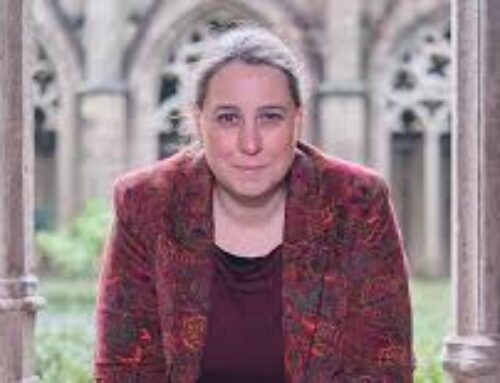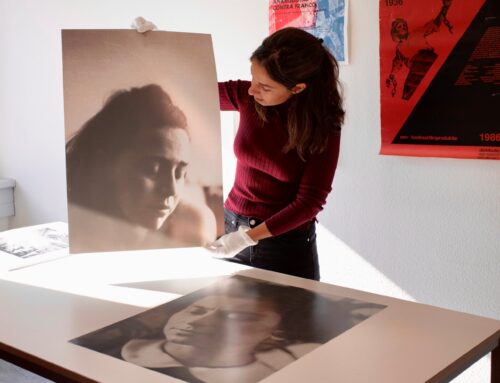 The Netherlands Research School of Gender Studies in cooperation with her partners organises the DOING GENDER Lecture Series. These lectures stress the importance of doing gender work combined with an active involvement in the practice of gender theory and research. The concept of DOING GENDER supports a hands-on approach to gender issues in the sense of social and political engagement with the new forms of gender inequalities that are taking shape in the world today. The lecture series wants to give space to the new generations of gender theorists and practitioners and to perspectives that innovate the field and do gender in new ways. Key is the notion of doing gender: what is the state of the art definition of gender? How do contemporary scholars and activists utilise this definition?
The Netherlands Research School of Gender Studies in cooperation with her partners organises the DOING GENDER Lecture Series. These lectures stress the importance of doing gender work combined with an active involvement in the practice of gender theory and research. The concept of DOING GENDER supports a hands-on approach to gender issues in the sense of social and political engagement with the new forms of gender inequalities that are taking shape in the world today. The lecture series wants to give space to the new generations of gender theorists and practitioners and to perspectives that innovate the field and do gender in new ways. Key is the notion of doing gender: what is the state of the art definition of gender? How do contemporary scholars and activists utilise this definition?
On Monday November 13, 2023 Dr. Akanksha Mehta (Goldsmiths University) will give the Doing Gender Lecture Thinking Through Violence; Cultivating Feminist Care: Pedagogical Reflections on Teaching on Gender, Sexuality, Race, Disability, and Caste.
Lecture: Thinking Through Violence; Cultivating Feminist Care: Pedagogical Reflections on Teaching on Gender, Sexuality, Race, Disability, and Caste
For the last few years, in my position as a feminist educator in a higher education institution in the UK, I have taught a course on feminist, queer, decolonial, and crip approaches to ‘violence’. The course draws dozens of undergraduates and postgraduates from across the university, many of them from communities that continue to face immense structural violence every day. Together we trace the material and affective economies of violence, paying attention to the racial-gendered-sexual-caste-based grammars that connect the seemingly disparate locations of (everyday) violence. Examining the cultural politics of violence alongside racial capitalism, dispossession, colonialism, abled white cis heterosexual supremacy, and oppressive infrastructures of the nation-state, we think through the forms and shapes that violence and its mediations take. Throughout, we focus on justice, grassroots activism, solidarity, resistance, and we work together to nurture communities of crip care in our classrooms and complex and power-infused relations with each other.
My experiences as an educator teaching this course, as a feminist researcher and writer who is preoccupied with violence as a subject of scholarly enquiry, and as an organiser who is committed to fighting oppression, keep bringing me back to a key (and rather long) question – What feminist queer crip decolonial pedagogies do we embrace when we teach about/on violence in institutions that came into being through violence, that survive through the upholding of the violence of the state, of borders and nationalism, of hierarchies and inequalities of coloniality, race, caste, and capital, of transnational authoritarianism and local gentrification/landlordism, of oppression, and that remain inherently violent and disabling to many of our students, colleagues, local communities, and us?
Using feminist-queer-crip theory and autoethnographic approaches, in this talk, I dwell on my experiences as a feminist scholar-activist and educator in the classroom (and the picket line!) to think through what it means to teach on/about violence while cultivating feminist care in an environment where none of us in these educational encounters remain untouched by violence and yet all stand positioned at different locations with regards to the legacies and ongoing impact of structural violence. Through narratives, I focus on particular pedagogical practices I have encountered and used and the ways in which these negotiated the complexities of the classroom (and beyond). Thinking through gender, race, sexuality, disability, and caste, I imagine ways in which feminist educators and learners can nurture spaces of radical possibility, community, and hope in violent institutions without burning out. This talk will contribute to ongoing and historical discussions on pedagogies of liberation and radical feminist queer crip practices of learning and teaching. It will also contribute to the key questions on researching and teaching about violence.
Biography:
Dr. Akanksha Mehta is a feminist educator, researcher, writer, photographer, and organiser. She is a Senior Lecturer in Gender, Race and Cultural Studies and the co-director of the Centre for Feminist Research at Goldsmiths, University of London. Akanksha’s teaching, within and beyond the university, examines critical knowledge productions on race and racism, gender and sexuality, disability, violence, colonialism and empire, resistance, protest, and political mobilisations. She writes about pedagogy, activism, care, institutions, and higher education. Her broader research uses narrative writing, ethnographic methods, visual practice, and feminist, queer, crip, postcolonial theory to examine the gendered, sexed, and racialized workings of everyday political mobilisations, violence, settler colonialism, and nationalism. She is currently finishing a monograph based on her ethnographic research with right-wing women in the Hindu Nationalist movement in India and Israeli Zionist Settler project in Palestine. She can be found on Twitter as @AjeebAurat. She is part of the Solidarity Kitchen collective, co-plotted Insurgent Knowledges (a public education collective), and runs a regular Crip Theory Reading Group.
Details lecture:
Doing Gender Lecture by Dr. Akanksha Mehta
Monday November 13, 2023
Lecture: Thinking Through Violence; Cultivating Feminist Care: Pedagogical Reflections on Teaching on Gender, Sexuality, Race, Disability, and Caste
Time: 13.15 – 15.00 hrs.
Location: Details available upon request, email NOG@uu.nl
Chair: Dr. Zuleika Sheik
Registration: nog@uu.nl






